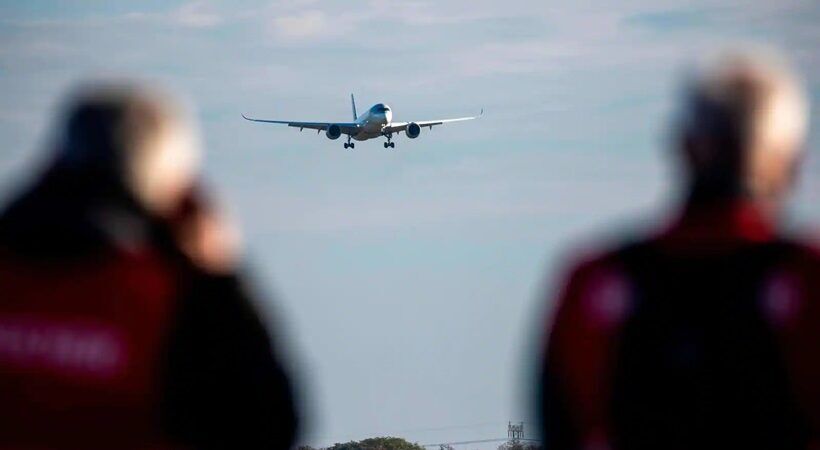End to the hiatus

Finally, after a two-year long hiatus, scheduled commercial international flights to and from India are set to resume from March 27 — coinciding with the planning of the summer schedule. Resumption of international flights couldn't be made on the announced date in December last year on account of the rising Omicron wave and was postponed a couple of times in the following months as well. The Ministry of Civil Aviation's move is a timely one as travellers, the aviation industry and the tourism industry had been desperately waiting for it. Government's announcement to ban international flights on March 23, 2020, on account of the raging pandemic was an obvious choice at that point in time. A day later, domestic flights were also banned. While the domestic flights resumed in a couple of months' time, the ordeal would last longer for the international flights that have been operating under bubbles since July that year. The prolonged impasse has cost the aviation industry dearly — nearly halving its arrivals and departures over the gap of two years. The slump in the aviation sector also coincided with the plight of the international tourism sector. Closing of national boundaries by countries across the world, including India, and self-restraint of travellers meant an obvious hit for the sector. Now, as India and the world appear to come out of the shadows of the third wave of the pandemic and vaccination status has improved remarkably across the globe, both the restraints are removed — setting an appropriate template for resumption of international flights. Reports suggest that, following a severely restricted phase, there is a strong urge among people to travel to faraway destinations. Resumption of international flights, through providing an outlet for realisation of this urge, could cash in big benefits to compensate for a fraction of the losses it had registered during the pandemic. In what is being termed as 'revenge tourism', the aviation industry can find a scope for big profits. Needless to say that revival of both the sectors — aviation and international tourism — will drive a broader recovery of the economy as well. Apart from aviation, tourism has been a sector that the government has been consistently focussing on over the past few years. As per the World Travel & Tourism Council (WTTC), the contribution of the tourism sector to the global economy could reach up to USD 8.6 trillion this year — 6.4 per cent below the pre-pandemic levels. The contribution stood at USD 9.2 trillion in 2019. The WTCC has also claimed that the sector will recover more than 58 million jobs globally in 2022. Through timely resumption of international travel, India, being a tourism hub, could garner a good share of these prospective benefits. Aviation sector also contributes significantly to the economy. Notably, in 2020, the IATA had reported that 29.32 lakh jobs in the aviation sector are at risk in India. Clearly, the resumption of international flights will safeguard these interests. Apart from these positive benefits, the timing of resumption of international flights in India is likely to ward off some of the negative externalities of the Russia-Ukraine war. Owing to the restricted airspace and soaring prices of energy fuels, the already ailing aviation sector could lose big. Regular commercial flights' operation will buttress the sector a great deal. Another important thing that needs to be borne in mind is the unpredictability of the pandemic. It has been hitting us hard in installments. Fortunately, the third wave of the pandemic has been milder than the second wave, but health experts warn that a subsequent wave may not necessarily be milder than the preceding one. As and when the situation improves, efforts need to be made to augment the ailing sectors of the economy. The persistently suffering aviation and tourism sectors badly needed this buffer time of hope. Government's promptness in this regard is indeed appreciable. All in all, the resumption of international flights appears to be good news for everyone. This has come on the back of rigorous vaccination programmes and safety protocols at the global level. As all the concerned stakeholders prepare the summer schedule of international flights, strict adherence to safety protocols must be placed on highest priority.



